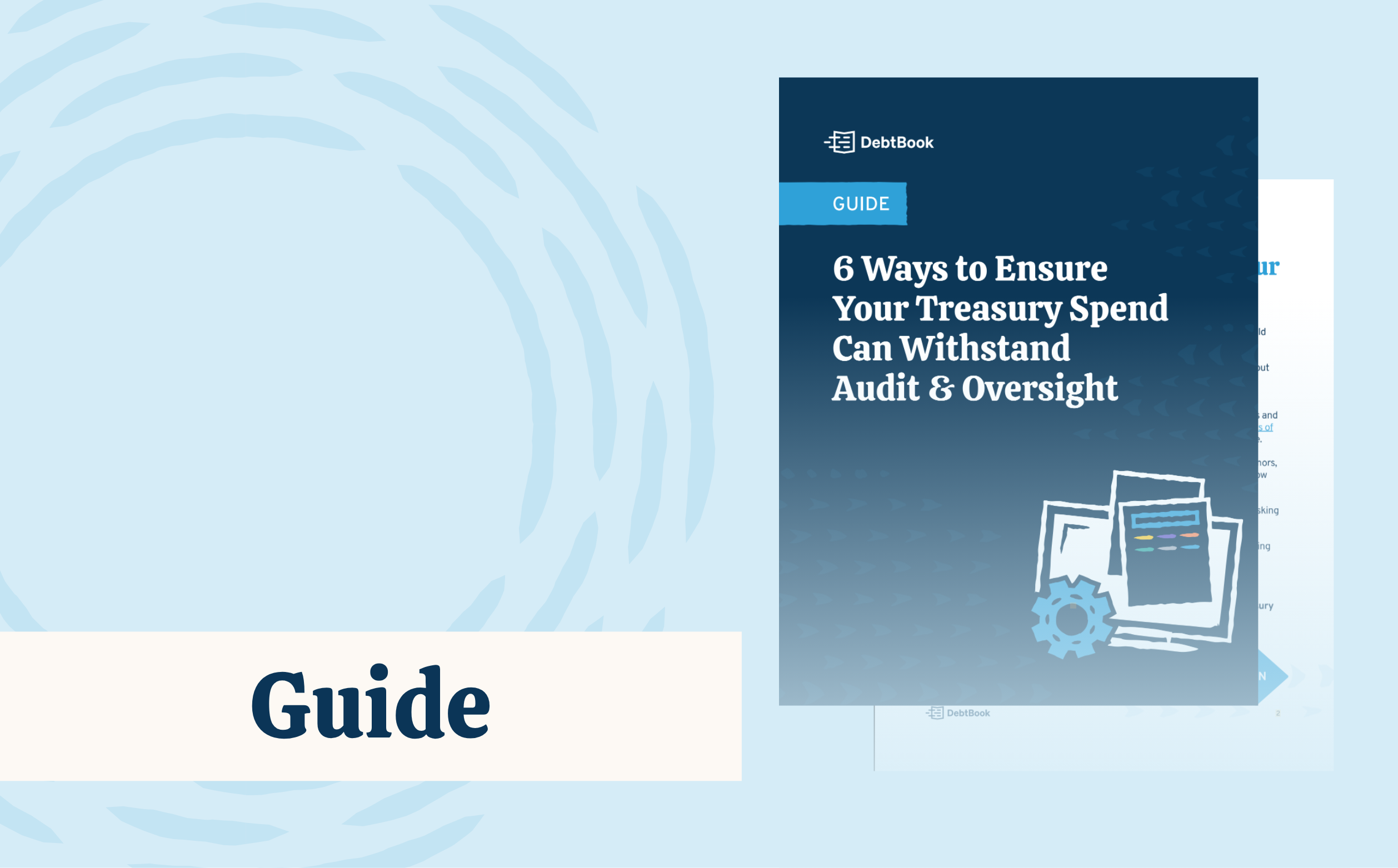Watch the Full Story
When the University of North Carolina at Charlotte (UNC Charlotte) transitioned to DebtBook’s Debt Management software, they aimed to replace a cumbersome Excel-based system with a more centralized and scalable solution.
What they didn’t anticipate was the profound impact DebtBook would have on their operations, from dramatically improving reporting efficiency to generating over $600,000 in savings for their students by retiring a mandatory debt fee early.
The Background
As a public research university with over 30,000 students and a $500 million debt portfolio, UNC Charlotte faced a growing challenge: managing a complex web of spreadsheets.
“We have a $500 million debt portfolio and we were an Excel-based operation, so we had a lot of spreadsheets saved on a network drive that some people knew where to find, some didn't.” said Greg Verret, Associate Vice Chancellor for Finance.
Each debt issuance had its own tab, making it difficult to track payments, refundings, and funding sources. Adding to the complexity, UNC Charlotte’s rapid enrollment growth and increased refunding activity during a low-interest rate environment only exacerbated the inefficiencies. This manual approach not only created delays but also posed risks to data accuracy.
“We had this one giant spreadsheet that had a tab for every issuance. We had a lot of refundings and some of these issuances originally had multiple projects.” Greg explained. “So some parts of those original issuances got refunded, some didn't. The spreadsheet grew to be so large that doing any kind of reporting was difficult.”
The Challenge
The limitations of UNC Charlotte’s existing debt management process came into sharp focus as the university sought to:
- Centralize and simplify debt data.
- Improve compliance and reporting accuracy.
- Reduce the time spent on annual financial reporting and debt portfolio analysis.
- Mitigate key-person risk, particularly as many team members neared retirement.
“We needed a better way to manage our data going forward. We were very manual and we wanted a process that would be scalable as a university,” Greg shared.
The Solution
DebtBook provided a user-friendly, centralized debt management platform that replaced UNC Charlotte’s Excel-based system. The implementation process was seamless, with DebtBook’s team handling 95% of the data migration and providing personalized support.
“We feel like we got the white glove treatment from DebtBook. It was so easy. We basically gave several of our spreadsheets to our DebtBook team and they ran it. They took all of our data, jumped into our spreadsheets, and built our profile in the DebtBook database.”
“Being able to see all of that information in the system with very minimal input or effort from our team was a huge benefit during our busiest season.” Greg said.
With DebtBook, UNC Charlotte gained:
- Dynamic amortization schedules that automatically update with simple dropdown selections.
- The ability to divide debt data by project, funding source, or issuance.
- A scalable system that institutionalized knowledge and reduced reliance on individual team members.
“Beyond just the basic functionality of seeing the amortization tables, it was also beneficial being able to slice and dice that data with the various views, whether by debt type or having a full source view. This unlocked some interesting ideas on how we could report on that data that we had not even thought of before,” Greg shared.
The Impact
Streamlined Reporting Reduces Time from Days to Hours
DebtBook drastically reduced the time required for financial reporting. The annual debt commitments note, which previously took several days of manual effort, now takes just a couple of hours.
“The annual reporting tasks that we did before DebtBook would take a couple of days for one FTE to sit down and put together the various spreadsheets and then build the table that was going to go into our financial statements,” Greg shared. “Now with DebtBook, it takes a couple of hours–if that. It's a very straightforward process to just extract the data from the DebtBook system, do a few checks, reconciliations, and you're done. So that's been a big win.”
Critical Analysis Uncovers Savings for Students
The ability to quickly analyze the debt portfolio led to significant financial benefits.
“Now with DebtBook, anytime we do reporting, we can isolate our debt portfolio or our debt data for a specific project or fund source. That's a very helpful feature,” Greg said. "Before DebtBook, we would have to figure out which project was funded by which issuance and then if it was refunded. It was a very laborious manual exercise. Whereas now with DebtBook, it's all linked together in the system so we can just instantly see that data by project.”
Another huge win: by using DebtBook’s tools to evaluate funding sources and maturity dates, UNC Charlotte identified an opportunity to retire a mandatory student debt fee several years early.
“We assess a mandatory fee on all of our students to help service various debt issuances,” Greg explained.
“By using DebtBook we were able to identify when this particular debt issuance was going to mature. So we were able to see a situation where we could actually retire that debt fee a few years early, prior to those bonds maturing. That actually resulted in real savings for our students. It was a $25 debt fee. So multiply that by the number of students being assessed – that's over $600,000 in savings to those students, which is a huge benefit.”
Institutionalized Knowledge Future-Proofs Operations
By centralizing data and making it accessible, DebtBook minimized key-person risk and enabled smoother transitions during personnel changes. The system’s intuitive interface even allowed new team members to get up to speed quickly.
“Our workforce skews on the older side, so we have people who are nearing retirement. While we had a number of spreadsheets on the network drive, a lot of that information was also in people's heads. DebtBook institutionalizes that information and makes it available to the whole team,” said Greg.
“So when someone retires or takes another job, or when we reassign people, we now have knowledge that's built into the portfolio and processes as opposed to having it go out the door with the person.”
This not only proved invaluable for the university during team member transitions and retirements but also created new opportunities for current employees to expand their skills and advance within their roles.
“If employees are interested in learning more about debt, I now have a more easily transferable system that I can pull someone else into that process, give them access to the profile, and then they're off and running in a short amount of time. That’s a real key benefit to us.”
Looking Ahead
UNC Charlotte’s experience with DebtBook highlights the transformative potential of modern debt management solutions. The university continues to explore new ways to leverage the platform’s capabilities to optimize its operations and better serve its students.
“DebtBook has enabled us to now focus our team's time and attention on other parts of their jobs that really add more value to the organization,” Greg said. “We can’t imagine going back to the old ways.”





